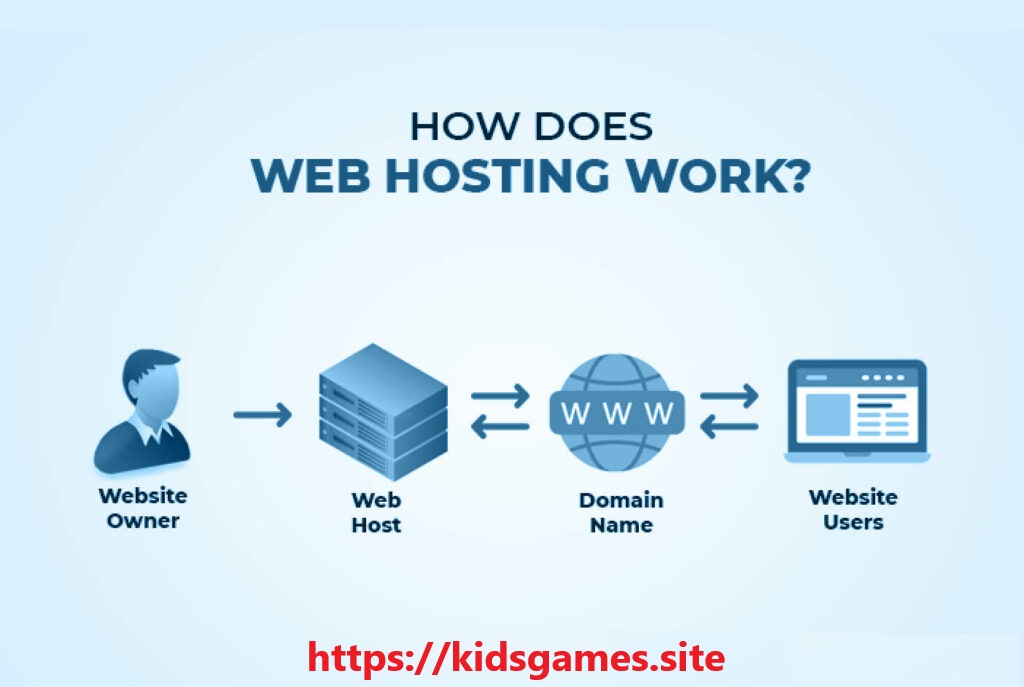Intro
Hosting has evolved to be one of the basic need in this digital world where we need it anytime while exist digitally. If you are thinking about launching a personal blog, a business website or an e-commerce platform then, the selection of the right kind of hosting service is most important. This is the very base of your foray online, which will decide how fast your site opens, whether it stays up without unnecessary downtime and whether they get to see your content when they try. Choosing an insurance plan for your car or home is as necessary as buying insurance and so it is in the case of hosting plans to ensure the safety of digital investment. So in this guide, we will walk through the Hosting 101 and various services type, how to select service provider and some swap tips for better performance.
The Different Hosting Services
Different Types of Hosting Services What to Look for When Choosing a Host Service?
1. Shared Hosting: Affordable option for beginners and small websites multiple sites sharing a single server’s resources. It is a cheap one but if you expect heavy loads from your website, then this is not the best solution due to high slows in such times.
2. This is a happy medium between cost effectiveness: Virtual Private Server hosting (VPS Hosting). This allows for dedicated resources in a shared environment, allowing for greater control and flexibility. Perfect for slow growing sites, and fast as well if you don’t want to move away from shared hosting.
3. Dedicated Hosting Perfect for very large, high-traffic websites, dedicated hosting means that you have an entire server to yourself. This enterprise-class alternative is faster and more secure, although at a little expense meaning it’s for businesses with particular high-maintenance needs.
4. Cloud Hosting: Characterized by the ability to grow and process most of your website using a network of servers. It allows resources to scale automatically, which is great for companies with typically though traffic fluctuations.
5. Managed Hosting: This is more of an out-of-sight, out-of-mind solution where you leave the nitty gritty to your host provider in terms of server management, updates and security so that you have all the time in the world on writing content. This is a great choice for anyone who does not want to deal with tech stuff.

Great Hosting Service
Choose a host with a good reputation that offers all the services you need (like uptime, quick load times, and responsive customer service). Customer support matters so only go for the ones that provide you 24/7 support in live chat, email and phone. Make sure that the provider provides certain features such as Control Panel access, email hosting and applications out of the box along with the option to upgrade or downgrade your plan. To ensure your site stays up, seek out at least a 99.9% uptime guarantee Choose providers with SSL certificates, firewalls and backups in place to protect your data.
Hosting Costs and Types
There are very different costs for hosting ( the type of service, or provider ) In selecting plans, consider the following:
1. Pricing Scheme: Check out bundle cost as well as membership costs. NOTES: Some systems offer lower prices only for the first year, with renewal rates as high as $ 300 per year.
2. Contract Length: The term is another common explanation for a lower cost Many providers will charge less for longer time commitments. Although this may be less expensive, only commit to long-term contracts when you feel comfortable with the provider.
3. Hidden Fees: Watch out for any other charges like setup fees, domain registration, email hosting etc. You do not want any surprises by finding out what the actual cost is in its entirety at this moment so you will be prepared.
4. Value for Money: They compare features that is put up in each plan. You may even pay a bit more for added features or resources.
5. Money-back Guarantee: Look for a hosting provider that offers a refund policy so you can test their services free of charge.
Benefits of Web Hosting Security & Backup
Security is a vital element while looking for a hosting provider, that lets you to keep your website and its contents (data) free from any threats. There is no exception to this: a secure hosting environment provides live support and security against hacks, malware, or other cyberattacks, especially for websites that store sensitive information. SSL Certificates make sure you choose ones that decrypt the data passing between your website and its guests to ensure security and take it to be more trustworthy.
Having frequent backups of your work will save you re-work if anything is ever lost, or becomes corrupt unexpectedly. Choose from providers that provide automatic backups with simple restore procedures This is one of the most helpful features that you have, with which you can quickly reset your site to an earlier point without losing much time.
A good hosting provider will additionally set up firewalls and monitoring so that they can anticipate threats before they really happen. Firewalls stop your servers from being attacked by malicious traffic, and monitoring systems can help you identify unusual or undocumented activity.

Consistent patching & upgrades They make sure that your server software is patched and protected against all known vulnerabilities. So this way NECOS has managed hosting provider and they will keep your site updates to take care of any security and your additional layer of defense is done without little more effort from your side.
Overall, Hosting providers help to protect your online presence by giving security and file backups importance, with these offerings available even when the site gets suspended due to any type of issue or threat.
How to achieve maximum Hosting Performance
After you have a hosting provider, the great task comes when seeing to the optimization of your website. Here are some practical tips:
1. CDN (Content Delivery Network): When you use a CDN, your website’s content is hosted on multiple servers around the world providing for faster load times and higher performance across all geography.
2. Optimized Images: Huge image files can slow your site to a crawl. Use optimization tools to compress images: To have faster loading you must apply image compression so as notched its quality.
3. Caching: By applying caching application in the site by storing the often called data on user browser will relive server load and your site can perform faster
4. Optimization of database: It is crucial to keep the database clean and optimize it regularly as from time to time, data needs removing. Keep the system bloat away, like spam comments and old post revisions, to get the best possible performance.
5. Minimize Your HTTP Requests: Decrease the number of elements on your pages, scripts, images and CSS files that will reduce the number of HTTP requests necessary to load your site.
6. Lazy Loading: Add lazy loading for images, videos load as user enters the viewport to help reduce initial page loads.
7. Gzip Compression: Switch on Gzip compression on your server to decrease the sizes of data route to your user gadgets, enabling faster download times.
8. Keep Update software: Ensure that your content management system (like WordPress) along with plugins and themes are updated as this helps you get more efficient version of the same.
9. Monitor Uptime and Performance: Monitor tools help you track your uptime So you can spot and solve problems in a jiffy.

Put these tricks to use on your site, and it will perform well for a flawless and speedy user experience that ensures the viewers leave impressed.
